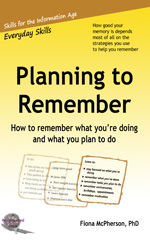Even mild head injuries can seriously affect the brain
Traumatic brain injury is the biggest killer of young adults and children in the U.S., and in a year more Americans suffer a TBI than are diagnosed with breast, lung, prostate, brain and colon cancer combined. There are many causes of TBI, but one of the more preventable is that of sports concussion.
This week Pennsylvania became the 35th state in the U.S. to have a youth-concussion law. Since I recently uploaded a topic collection on TBI (traumatic brain injury), this seems an appropriate time to talk a little about sports concussions and their possible long-time repercussions.
In 2009, a study commissioned by the National Football League reported that Alzheimer’s disease or similar memory-related diseases had been diagnosed in the league’s former players dramatically more often than in the national population: five times the national average among those 50 and older (6.1%) and 19 times for those aged 30 through 49.
This follows a 2005 study that found retired National Football League players had a 37% higher risk of Alzheimer's than other U.S. males of the same age. Those who had experienced three or more concussions had a five-fold greater chance of having been diagnosed with mild cognitive impairment and a three-fold prevalence of reported significant memory problems compared to those players without a history of concussion.
Most recently, a follow-up of nearly 4,000 retired National Football League players surveyed in 2001 found that 35% appeared to have significant cognitive problems. When 41 of them were tested, they were found to have mild cognitive impairment that resembled a comparison group of much older patients from the general population.
Now, you might (if you’re a parent) console yourself with the thought that professional football players are likely to be involved in much greater impacts than those suffered by your child on the sport’s field. But unfortunately there is growing evidence that even mild concussions can produce long-lasting trauma to the brain.
For example, monitoring of 11 high school football players found that some players who hadn't been diagnosed with concussions nevertheless had developed changes in brain function following head impacts, and these changes correlated with cognitive impairment. Brain scans have also revealed abnormalities in white matter at all levels of severity in traumatic brain injury, even in those who had minimal or no loss of consciousness, and those with no self-reported cognitive deficit. And analysis of medical records on over 280,000 older U.S. military veterans found that severity of brain injury made no difference to the increased likelihood that they would develop dementia.
Not all impacts are equally bad. There’s some evidence that the area to the top and front of the head (just above the dorsolateral prefrontal cortex) is particularly vulnerable.
Another danger sign is headaches. A study found that young athletes who experienced migraine headache symptoms (even one week after concussion) were likely to have increased cognitive impairment, and shouldn’t return to play before the headache resolves.
Children exposed to lead early in life might also be especially vulnerable to the effects of head injury. Rat studies have found that young rats exposed to low levels of lead don’t recover from brain injury as well as those not so exposed.
Head trauma shouldn’t be accepted fatalistically. There are actions you can take to ameliorate its effects (if you don’t want to remove yourself from the risky situations). What these findings emphasize is the importance of treating even mild head injuries, of giving your brain time to repair itself, and of following a regime designed to mitigate damage: exercising, eating a healthy diet, reducing stress, and so on.
My recent report on transient global amnesia demonstrates the incredible ability of the brain to repair itself — but it must be given time to do so before subjecting it to more trauma. According to a leading tracker of youth sports injuries, returning to play too soon is a trend that occurs in roughly 40% of sports-related concussions of student football players.
The three main provisions of Washington state's Zackery Lystedt law, considered by the National Football League to be model youth-concussion legislation, are:
- a student-athlete's parent or guardian must sign a concussion-awareness information form before the student-athlete is eligible to participate in school athletics;
- any student-athlete suspected of a concussion must immediately be removed from play;
- any student-athlete who has a concussion must obtain medical clearance before being allowed to return to practice or competition.
Many states also require some form of concussion training for coaches.
References (and more details) for the studies I have mentioned can be found in my topic collection on TBI.
